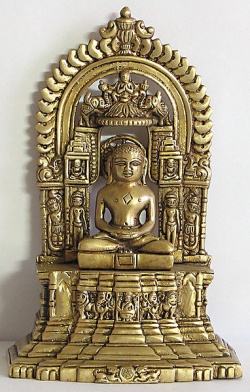Itivuttaka
Jump to navigation
Jump to search
The Itivuttaka is a small book in the Khuddaka Nikāya, the fifth part in the Sutta Piṭaka, the second division of the Tipiṭaka, the sacred scriptures of BUDDHISM. The Name itivuttaka means ‘as was said’ and the work consists of 112 short discourses or suttas with a verse at the end of each. Unlike most other discourses, these do not begin by mentioning where they were spoken. According to tradition, they were all delivered by The Buddha in Kosambi where a servant woman named Khujjuttarā from the royal palace heard them, committed them to memory and passed them down.
The Itivuttaka (Pali for "as it was said") is a Buddhist scripture, part of the Pali Canon of Theravada Buddhism and is attributed to Khujjuttara's recollection of Buddha's discourses. It is included there in the Sutta Pitaka's Khuddaka Nikaya. It comprises 112 short teachings ascribed in the text to the Buddha, each consisting of a prose portion followed by a verse portion. The latter may be a paraphrase of the former, or complementary. Some scholars consider it one of the earliest of all Buddhist scriptures, while others consider it somewhat later.
Translations
Sayings of Buddha, tr J. H. Moore, Columbia University Press, 1908 "As it was said", in Minor Anthologies of the Pali Canon, volume II, tr F. L. Woodward, 1935, Pali Text Society , Bristol Tr John D. Ireland, Buddhist Publication Society, Kandy, Sri Lanka, 1991; later reprinted in 1 volume with his translation of the Udana Tr Peter Masefield, 2000, Pali Text Society, Bristol; the PTS's preferred translation; its declared aim is to translate in accordance with the commentary's interpretation
The Itivuttaka - The Sayings of The Buddha, trans. by J.D. Ireland, 1991.
Source
[www.buddhisma2z.com/content.php?id=194 www.buddhisma2z.com]
